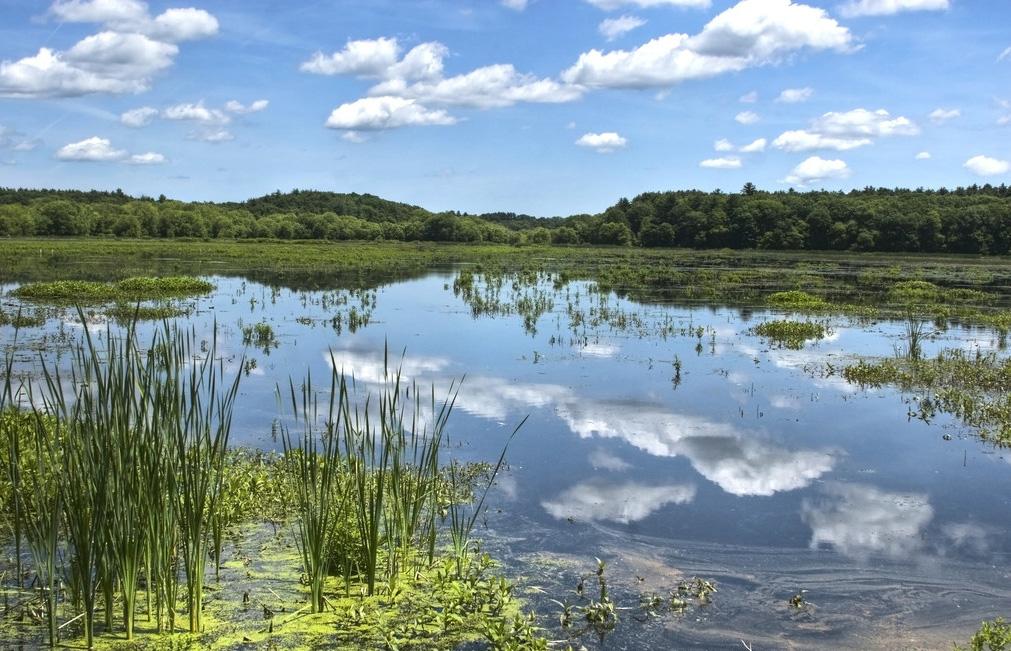BEIJING, March 21 (Xinhua) -- Dianchi Lake in southwest China has hopes of restoring its lost splendor after 30-odd years of severe pollution.
Water quality in the lake, the largest on the Yunnan-Guizhou Plateau, was once deemed "inferior to Grade V," the worst in China's water quality grading system and "too polluted for any purpose."
Decades of breakneck growth left much of China's water seriously contaminated by factory waste and agricultural fertilizer. Last year was the first time the water in the 300-square km lake was clean enough to be used for agriculture since 1985, a testament to what China has achieved.
The story of the Dianchi Lake is encouraging and nationwide, things are gradually getting better.
The proportion of monitored surface water reaching Grade III or above rose by 1.8 percentage points to 67.8 percent in 2016, surpassing the 66.5-percent target, Zhang Bo, an official with the Ministry of Environmental Protection (MEP), said ahead of World Water Day on March 22.
The share of water "inferior to Grade V" fell by 1.1 percentage points to 8.6 percent, Zhang told a press conference on Monday.
Only water at or above Grade III can be used for drinking, although treatment may be required.
The work behind the seemingly small improvement was anything but easy, exemplified by the clean-up of Dianchi Lake, a victim of reckless industrial development, surging domestic sewage and once regarded as the filthiest body of water in China.
The city of Kunming, where the lake is located, has now built 22 sewage disposal plants. A total of 35 major rivers flowing into the lake have been treated, and intensive livestock and poultry farming in the vicinity banned.
China has said "no more" to economic growth at the price of the environment, but it takes time and hard work to reverse decades of damage. More than 70 percent of the water in seven major river valleys, including the Yangtze and Yellow rivers, should reach Grade III or better by 2020, according to a 2015 action plan.
In December, China began to appoint "river chiefs" with responsibilities which include resource protection, pollution prevention and control, and ecological restoration. Their performance will be assessed and they will be held accountable for environmental damage in bodies of water under their supervision.
Environmental protection and restoration is a top priority of the development plan for the Yangtze River economic belt, which covers about a fifth of China's land and accommodates over 600 million people.
Industries along the river will be cleaned up and growth of water-consuming sectors strictly controlled. Pilot projects will begin to restore ecosystems along the belt this year.
Earlier efforts have already begun to pay off. Water quality in the region improved by 2.8 percentage points in 2016, according to Chen Jining, minister of environmental protection.
That achievement came through closing of 160,000 animal farms and demarcation of 32,000 areas as off limits for livestock and poultry breeding. Waste water treatment works were installed in 281 significant industrial clusters.
The MEP will analyze water quality each month and give warnings where quality worsens. If quality continues to deteriorate for three months, the ministry has the power to take forceful action including calling in officials and canceling projects, Zhang said on Monday.
For all its work, China still has a long way to go in its quest for clear lakes and rivers.
Zhang complains of still worsening water quality in some places and "widespread destruction" of aquatic ecosystems, while warning of drinking water safety.
"Although water quality has improved around the country, the improvement still fell far short of people's expectations," he said.




 A single purchase
A single purchase









